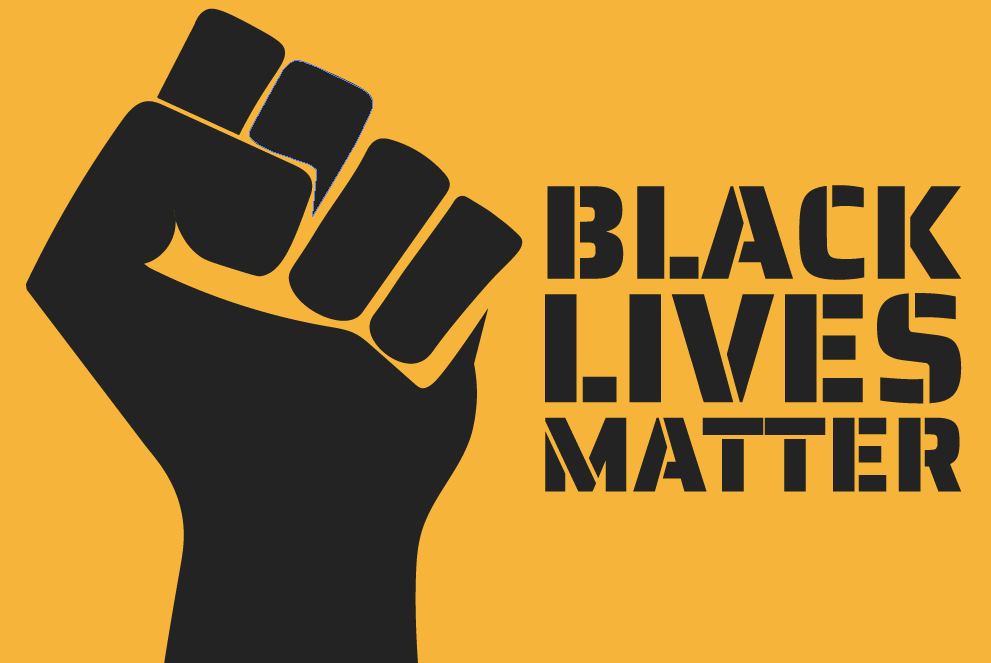
Letter to the Washington and Lee University School of Law Community
To the Washington & Lee Law Community,
On May 25, 2020, Systemic Racism in America reared its ugly head again. George Floyd was murdered by a police officer, a public servant who bore the responsibility to protect Floyd and the rest of the Minneapolis Community. Mr. Floyd’s death is not a new or singular event. Recently, others lost their lives unjustly at the hands of the police. Breonna Taylor was shot in her home while she was sleeping. The police executed a no- knock warrant on the wrong apartment. Tony McDade, a trans man, was shot and killed by the Tallahassee police last week. The Tallahassee police have yet to make a statement regarding this senseless murder. Ahmaud Arbery was murdered by white residents while he was jogging. These crimes build on a history of black suffering and injustice when law enforcement is involved. And, of course, they tap into a deeply-rooted legacy of violence and mistreatment of African-Americans that is older than the Republic. It continues. During the protests that have swelled in reaction to Mr. Floyd’s murder, more have been slayed as the police use their power to harm—and kill—protestors and bystanders.
Our hearts are with George Floyd, Breonna Taylor, Tony McDade, Ahmaud Arbery, and their families and communities. We also stand with the hundreds of black men, black women, black children, and black LGBTQ+ members who have lost their lives to police brutality in recent years. We stand with the millions of black people who may not have been killed by police brutality, but who have suffered a bruise or broken jaw from a police baton, who have quailed under the leery gaze of a badge, who have known a relative or a friend who has suffered at the hands of our police force, and who in fact died a little more inside when they saw, yet again, the knee of America crushing the back of their neck. And we stand with all marginalized and underrepresented communities that have suffered disproportionately from police brutality. This moment is about the fight for black citizens, our neighbors, colleagues, and friends. The German Law Journal, wholeheartedly believe that Black Lives Matter.
The German Law Journal is an International Journal focused on forging strong relationships and bonds between international legal communities through scholarship. That core belief, that we are an international institution with a pluralist understanding of legal and social culture, allows us to process and comprehend these recent deaths at the hand of the police in or own unique way. And it is that strong identity that lets us understand that this issue is not an issue for black people alone. This is an issue for all people. What we are talking about is oppression. The German Law Journal has a special responsibility to condemn it. The jurisdictions about which our authors write—very often Germany and Europe—have destructive and dark legacies that now stand as eternal warnings about the cruel costs and corrupting consequences of racism and violence. We would be particularly remiss if we did not speak out, or we will have wasted the lessons handed down, especially in those jurisdictions’ jurisprudence, about vigilance, tolerance, and justice.
Our government has the authority to govern only through our consent. And we all know that we are supposed to receive something for that bargain. Now, all over America,
people are in uproar. Some are protesting peacefully, some people are injecting violence and the destruction of property into those protests, and some are protesting the protestors, demanding that they do it the “right way.” What they are really saying is that rioting, looting, and the destruction of property all break the social contract we have with our government and with each other. However, it is not for others to say how a group of people who, from the very inception of this nation, have been terrorized, marginalized, abused, and degraded, should protest. When they peacefully protested, that too was condemned. Property can be rebuilt. Insurance claims will support the businesses and corporations that lost their windows, were graffitied, or were looted. But the lives lost are not coming back. The trauma the black community collectively endures is not diminishing. The pain of the family and loved ones who lost someone at the hands of the police, and/or our societal systems, isn’t going to be fixed.
We must look deeper to understand the truth. Racial bias and racially motivated police brutality shatter the social contract to which we have all committed and from which all of us can expect to benefit. Racism, bigotry, and violence erode our society in important and permanent ways. That is why the impulse to rebel against a system that has historically reneged upon the rights and freedoms promised is far more understandable. The German Law Journal does not advocate or condone the destruction of property; however, we do recognize that it is not for us to say how a group that has suffered so much should protest.
This brings us to a final point. One that touches us in our home and community at W&L. In our two years in Lexington, we have seen race play a significantly negative role in all of our lives. There are problems that are easy to miss in Lexington if one does not look very hard. We need to ask ourselves if we are doing enough here at W&L, both as budding lawyers and as community members. Recently, the German Law Journal endorsed the student-driven petition to give students a choice to remove the likenesses of George Washington and Robert E. Lee from their diplomas. Though we will not relitigate the issues involved with that campaign, we point to its demise as a failure on our institution’s part to hear the voices of its students, especially its students of color. There is a sentiment simmering that questions the school’s loyalty and dedication to its minority students. That feeling in and of itself is a failure. And this is just one of several failures. We have seen anonymous racial epithets in our law school; even one is one too many. We have seen the Martin Luther King Jr. holiday preceded by Robert E. Lee supporters parading through our town. We have seen Klan pamphlets pollute our campus. These are but a few instances of the way race is playing a destructive role in our community.
We ask our community to do more. We implore our fellow students to pick up the mantle with us, together, and take affirmative steps to fight racial injustice in our own lives and in our own shared community. As future lawyers, legal educators, and legal advocates, we must do more. We have to amplify our black peers’ voices. We have to understand that our profession—by its very nature—is inherently part of the problem. We will become judges, professors, prosecutors, defense attorneys, government figures, and corporate attorneys. All of us will play a distinct role in our criminal justice system and communities. Those roles involve chances and choices about the perpetuation of the inherently racist
systems we have now. We implore all of you—and we commit ourselves—to constantly ask what more can be done to effect change. This does not mean asking our black peers and professors what to do. That is not their job, and it is not their responsibility. The onus is on us to learn more, be better allies, and unlearn the biases with which our history has infected us. It is our responsibility to bring forth true values of equality not only now, but also in our future careers. We must constantly check our instincts and ensure that we are fighting for equality.
Let us also be clear. It is not just police brutality we are condemning. We are condemning racism as a whole, and the disparate damaging effects it has on black citizens. We are committing to do it, and we are asking our community to join us in speaking out on injustice and working towards eradicating racism. We have the power to do so, and we are uniquely positioned to do more.
Asking to be treated as a human, asking for equality, and asking for an end to constant persecution should not be a political issue.
During moments of great strife and turmoil, each of us is confronted by a choice. The German Law Journal chooses to stand up and speak out, as we have on other issues in the past. We will continue to speak out on these issues, and we will continue to fight against racism and injustice. We are firm in supporting the other members and organizations in our community who stand for diversity and pluralism. We are determined to hear and amplify the voices coming from all across America, and the world. They are crying out for justice.
We hope that you join us.
Sincerely,
Jac Andrade, Anahita Mohtasham-Gharagozloo, and the Student Editorial Board
Executive Editor Managing Editor German Law Journal








2 Comments
Heiko Recktenwald
There is also history. And the history of history. There are George Washington and so on on diplomas, Generals in parks on horses. We can look at them in many ways, but they help us to remember. May there be a better future.
Liza Crosse
Thank you for this important and beautiful statement. You have inspired me to write a letter to the Washington and Lee University’s leadership supporting the movement to change the University’s name. The current name ties the University to our country’s darkest era, and the ongoing oppression of American people. It also prevents the University from taking its rightful place amongst the leading academic institutions.
However, I take strong issue with your paragraph about the destruction of property, looting and violence. You fail to consider that many individual people’s lives are badly impacted by this kind of rioting. It is not just an inconvenience. Insurance does not stop people losing jobs or being forced to close businesses as a result of rioting. The destruction of government property halts all kind of important services, including essential social services. Government property is generally uninsured, so tax dollars will go to repairs, instead of important government functions, including services that help support equal access and racial justice. I urge you to condemn violence and destruction of property.